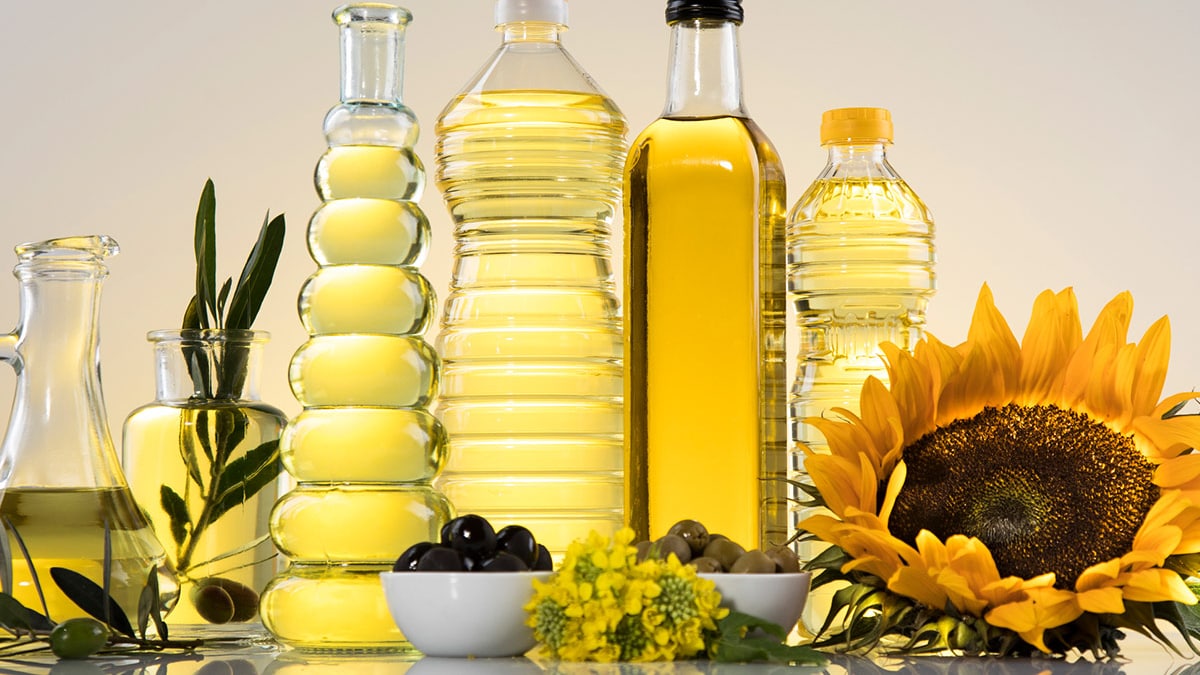Frying is a popular cooking method, but it requires careful selection of oils to ensure both flavor and health benefits. Oil choice is crucial because different oils have different smoke points, which is the temperature at which an oil begins to break down, producing smoke and potentially harmful compounds. When an oil reaches its smoke point, it loses its nutritional value and can impart a burnt flavor to foods. Therefore, understanding which oils are best suited for high-temperature cooking, such as frying, is essential for both health and culinary success. In this article, we’ll explore the best and worst oils for frying, helping you make informed choices in the kitchen.
Read also: Top 5 Cooking Oils for Heart Health, According to Dr. Shriram Nene
Here are the 6 best oils for frying:
1. Refined coconut oil:
Refined coconut oil is a great choice for frying due to its high saturated fat content and high-heat stability. With a smoke point of about 400 degrees F (204 degrees C), refined coconut oil is less likely to break down during frying, preserving the flavor and health benefits of the food. Its mild flavor also makes it a versatile choice for a variety of dishes.
2. Refined olive oil:
Although extra virgin olive oil is often praised for its health benefits, it is not suitable for frying due to its low smoke point. However, refined olive oil is a different story. It has a smoke point of 465 degrees F (240 degrees C) and contains healthy monounsaturated fats. Refined olive oil undergoes a process that removes impurities, making it stable for frying without altering its fundamental glyceride structure. Its neutral flavor allows it to be used in a wide range of recipes.
3. Ghee (clarified butter):
Ghee, or clarified butter, is another great choice for frying. With a smoke point of about 450 degrees F (232 degrees C), ghee can withstand high temperatures without breaking down. It’s rich in butyric acid, which supports gut health by promoting the growth of beneficial bacteria. Plus, ghee’s anti-inflammatory properties make it a healthy choice for frying, sautéing, and other high-heat cooking methods.
4. Avocado oil:
Avocado oil is one of the healthiest oils you can use for frying. It has an exceptionally high smoke point of around 520 degrees F (271 degrees C), making it ideal for high-heat cooking. Avocado oil is rich in heart-healthy monounsaturated fats, similar to olive oil, and contains essential fatty acids. fatty acidsantioxidants and vitamins A, D and E. These nutrients contribute to various health benefits, making avocado oil a premium choice for frying.
5. Rice bran oil and peanut oil:
Both rice bran and peanut oil are good choices for frying, as they have a high smoke point and a healthy balance of monounsaturated fats. These oils are stable at high temperatures and offer a neutral flavor, making them suitable for a variety of fried dishes. Rice bran oil, in particular, is known for its antioxidant content, while peanut oil is valued for its nutty flavor.
6. Mustard oil:
While mustard oil is commonly used in some regions for cooking, it contains erucic acid, which has been linked to heart problems in animal studies, although the evidence in humans remains inconclusive. Mustard oil has a high smoke point and contains beneficial fats, but should be used sparingly, especially if other healthier options are available, such as olive or avocado oil.
Read also: How to safely dispose of cooking oil after frying? A viral video explains it
These are the 2 worst oils for frying, according to the doctor
1. Extra virgin olive oil:
Extra virgin olive oil is highly valued for its health benefits, including its rich content of antioxidants such as polyphenols and vitamin E. However, it has a low smoke point and is not suitable for frying. When exposed to high temperatures, extra virgin olive oil can degrade, leading to the production of harmful compounds. It is best reserved for slow cooking or raw dishes, such as a vinaigrette.
2. Seed oils (sunflower, soybean and canola oils):
Oils such as sunflower, soybean and canola are high in polyunsaturated fats, which are prone to oxidizing at high temperatures. When these oils oxidize, they produce harmful free radicals, which can contribute to chronic diseases. For this reason, it is advisable to avoid using these oils for frying.
Opting for oils with high smoke points and stable fat content can make your fried dishes healthier and more enjoyable.
Disclaimer:
The information contained in this post is for general information purposes only. We make no representations or warranties of any kind, express or implied, about the completeness, accuracy, reliability, suitability or availability with respect to the website or the information, products, services, or related graphics contained on the post for any purpose.
We respect the intellectual property rights of content creators. If you are the owner of any material featured on our website and have concerns about its use, please contact us. We are committed to addressing any copyright issues promptly and will remove any material within 2 days of receiving a request from the rightful owner.

